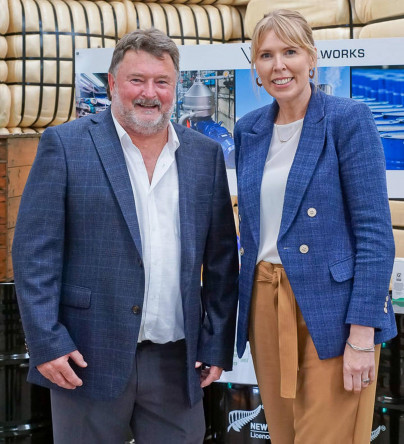Meridian programme helps electrify industrial boilers - one of NZ's biggest emissions sources.
 Meridian Energy is taking aim at the second-largest source of energy-related greenhouse gas emissions in New Zealand – process heat from fossil-fuel-fired industrial boilers.
Meridian Energy is taking aim at the second-largest source of energy-related greenhouse gas emissions in New Zealand – process heat from fossil-fuel-fired industrial boilers.
Process heat – usually defined as energy primarily used for industrial processes and warming spaces – accounts for 34 per cent of New Zealand's total energy consumption, generating 8.5 million tonnes of carbon emissions every year. It is used widely in the food manufacturing, dairy, chemical and wood processing sectors.
Now, however, Meridian has launched a new programme to support the reduction of emissions from industrial boilers powered by fossil fuels – electrifying the boilers instead. The first three projects of Meridian's Process Heat Electrification Programme involve working with three companies - ANZCO, Meadow Mushrooms and WoolWorks New Zealand Limited.
The projects will target the removal of more than 15,000 tonnes of carbon emissions from their process heat production per annum, the equivalent of removing over 8000 cars from the road.
Meridian Chief Executive Neal Barclay says the combination of long-term supply contracts and highly competitive electricity pricing offered by the programme is key to reducing carbon emissions by a potential 100,000 tonnes per annum – the emissions equivalent of over 50,000 cars every year. He says;
"We're offering sharp, long-term deals to customers who want to reduce their emissions profile by decarbonising their process heat,"
The programme will assist customers in these sectors by providing long-term electricity contracts at highly competitive prices, on the proviso that customers use the electricity to help replace fossil fuels and reduce carbon emissions.
"These businesses are showing real climate leadership at a time when domestic customers are making an effort to reduce their environmental impact and international customers are demanding action on sustainability," adds Barclay.
The programme is transformational for businesses that would otherwise struggle to commit to electrifying their process heat, says Barclay: "We are in a fortunate position to be able to help in accelerating New Zealand's transition away from fossil fuels."
"Converting boilers to electricity has been challenging for many businesses due to the capital investment required and the investments they've already made in assets that use significant amounts of fossil fuels.
"Many are keen to convert process heat to electricity for the operational and environmental benefits but are unable to do so because it is uneconomical. This project levels the playing field and makes electrification stack up commercially as well as environmentally," Barclay says.
WoolWorks New Zealand Chief Executive Nigel Hales says Meridian's extensive support and commitment to a long-term electricity supply contract will help the company install an EBoiler to produce steam, and an industrial heat pump to generate hot water which is expected to save over 11,000 tonnes of carbon dioxide every year.
"We are continually looking at ways to reduce the impact of our operations on the environment and this investment shows how serious we are about playing our part in helping to address climate change," says Mr Hales.
Mr Barclay says WoolWorks has made a real commitment to decarbonisation and combating climate change.
"WoolWorks are showing real climate leadership at a critical time. Meridian is proud to be partnering with WoolWorks to help reduce their environmental impact and demonstrate their commitment to climate action to their international customers."
Meridian's Process Heat Electrification Programme is now open to expressions of interest from commercial and industrial customers who are looking to electrify their process heat and reduce their carbon emissions profile.
The programme is also open to new and existing Meridian customers, more information on eligibility is available at meridian.co.nz/process-heat.
This article was originally published on the New Zealand Herald 26 April 2021.